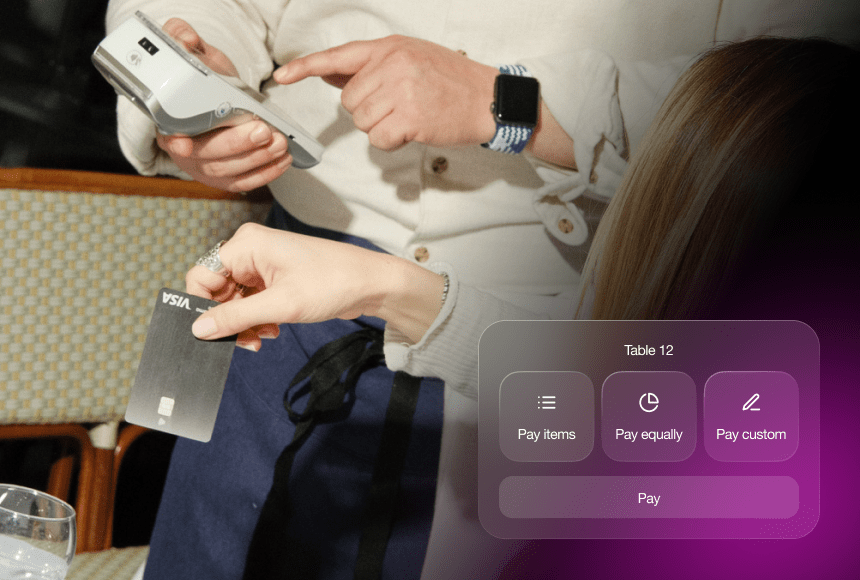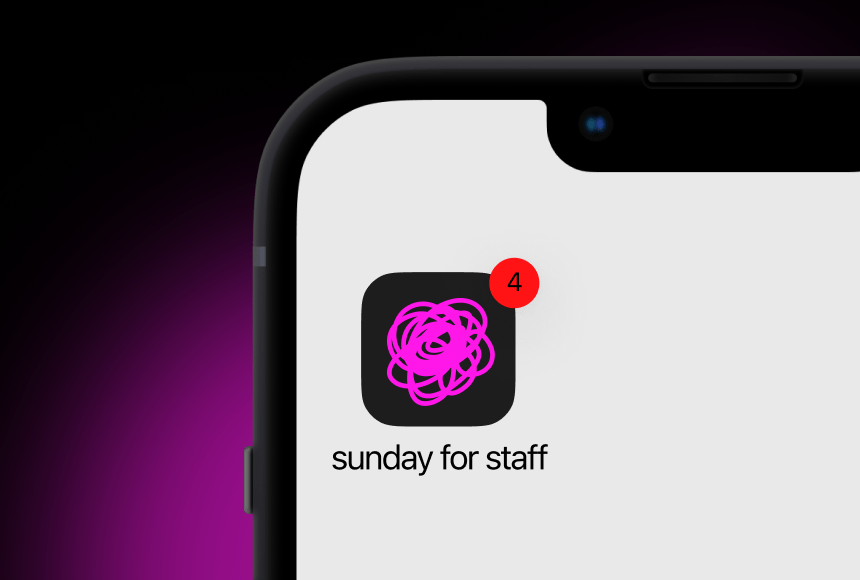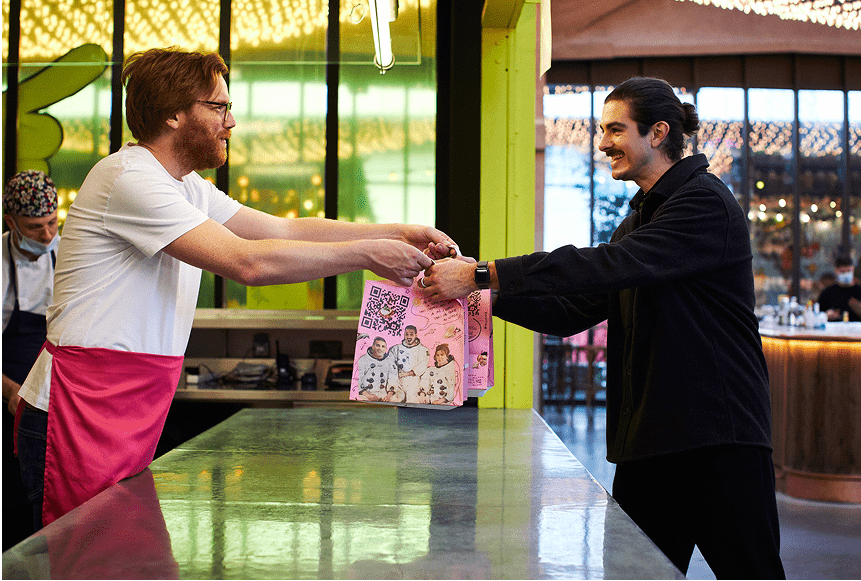
Building a Vibrant Culture That Keeps Your Staff Engaged and Driven
The Vital Link Between Pay and Performance
When we talk about a restaurant’s success, we usually zero in on the menu, the ambiance, or the speed of service. But behind all these elements lies a workforce of managers, servers, kitchen staff, and hosts who bring the dining experience to life. If you want to fuel their enthusiasm and retain them for the long haul, you need to set up a fair, transparent system of remuneration combined with strategies that nurture ongoing performance. In other words, it’s about ensuring your team feels both rewarded and valued for their efforts.
Yet, achieving this harmony isn’t always straightforward. Common pitfalls include unclear tip allocations, outdated incentive structures, or the misunderstanding of generational differences in motivation. By addressing these issues and turning to modern digital solutions like Sunday, restaurant owners can create a positive loop: better motivation drives better service, which in turn boosts guest satisfaction and profits. Let’s dig into how.
1. Rethinking Your Pay Model for Today’s Workforce
Basic wages are just that: basic. Many restaurant employees, especially front-of-house staff, rely heavily on tips or bonuses to make up a decent living. But a pay scheme that’s purely tip-dependent can create uncertainty, leading servers to jump ship if they sense more stable earnings elsewhere.
- Offering a Solid Base Pay: While minimum wage might save costs in theory, investing in a slightly higher baseline can anchor employees. They’ll see your restaurant as a reliable income source rather than a short-term fix.
- Building in Incentives: Whether a portion of profits goes into a bonus pool or you offer performance-based add-ons for upselling certain specials, these small rewards can energise daily tasks. The notion of direct effort = greater pay fosters focus and commitment.
Of course, you can’t rely on money alone to keep staff engaged. But ensuring a stable, fair pay structure gives them confidence to pour their energy into delighting guests rather than worrying about rent.
2. Making Tip Distribution Transparent and Efficient
Tip management is a sticky subject, especially if there’s any doubt about how those extra earnings are shared. Servers who suspect management is miscounting or applying random tip splits may feel slighted, creating an atmosphere ripe for gossip or even staff departures.
Here’s where digital solutions shine:
- Accurate Digital Logging: Using a platform that ties directly to each transaction — like Sunday — means tips are tracked automatically per staff member or shift. If a table adds a 15% tip via a QR code payment, that data is securely stored.
- Easy, Real-Time Access: Some software provides staff with immediate viewing of their tips. This transparency builds trust and cuts back on end-of-shift disputes. Your team sees precisely what they earned.
- Fair Splitting Policies: If tips are pooled or partially shared among back-of-house and front-of-house, an automated system can handle the percentages or points. Everyone understands the logic, leaving less room for resentment.
When staff believe tip distribution is consistently fair, they can focus on delivering top-tier service rather than second-guessing management’s methods.
3. Setting Up Performance Metrics That Motivate
Beyond wages and tips, employees thrive when they see clear goals and ways to earn recognition for surpassing them. Consider implementing performance metrics that aren’t solely about money but also revolve around guest satisfaction or personal development.
- Sales Targets: Of course, you can track average spend per guest or the number of certain specials sold. Reward staff who excel, either with small bonuses or fun perks (like a better schedule slot or a featured staff bio on your website).
- Customer Feedback: If you use digital payment systems that encourage quick Google reviews, see if certain servers consistently earn praise. Celebrating that feedback in staff meetings fosters a healthy environment of appreciation.
- Team Milestones: Not every metric needs to be individual. You might challenge the entire team to boost the lunch trade by 10% over a month, with a shared bonus or staff party if they succeed. This shared goal can unify your crew.
Make sure metrics feel attainable. Nothing kills motivation faster than unattainable quotas. If you see a staff member lagging, treat it as a coaching moment rather than condemnation. That supportive approach cements loyalty.
4. Embracing Digital Tools for Scheduling and Communication
Few things demoralise staff more than chaotic scheduling. Inconsistent hours can disrupt personal life, while last-minute roster changes spark frustration. Enter digital rota systems and communication platforms:
- Online Shift Planners: Managers can create rotas with a few clicks. Staff see them live, request changes, or offer to cover a shift — all from their smartphones. This level of transparency keeps conflict at bay.
- Push Notifications: Need an extra pair of hands for a weekend event? Send a quick announcement. Interested servers can sign up instantly, preventing that frantic phone-tag. This sense of organisation goes a long way in making people feel their time is valued.
When staff can easily view or swap shifts, they’re less likely to feel cornered by a schedule that doesn’t respect their personal needs. That fosters the environment you need to keep them engaged long-term.
5. Celebrating Progress and Short-Term Wins
There’s a reason sports teams huddle to cheer every small victory. Public recognition ignites a sense of achievement and camaraderie. In busy restaurants, it’s easy to forget these small celebrations, but they might be crucial to daily morale.
Think about:
- Weekly “MVP” Announcements: At week’s end, highlight who sold the most house specials or who earned the highest average tip. A quick mention over a staff huddle can mean a lot.
- Shout-Out Wall: Create a digital board or use staff messaging apps where colleagues post short kudos — e.g., “Sam helped me prep tables in record time on Saturday night!” Encouraging staff to praise each other cultivates a mutual support system.
Positive reinforcement encourages staff to take pride in their work. Acknowledgement of small strides avoids the feeling of being just another cog in the machine.
6. Leveraging Automation for the Mundane Tasks
Admin chores like counting receipts, reconciling tips, or updating product stock can sap your employees’ energy. By automating the routine elements, you help staff channel focus into creative, higher-value activities — perhaps polishing a new cocktail recipe or refining your plating style.
Examples of beneficial automation:
- Instant Payment Updates: Systems like Sunday automatically note each transaction in your POS. Servers don’t have to re-enter data, which helps them attend to more tables with less stress.
- Inventory Management Apps: When items are sold, the digital system subtracts them from stock. Kitchen staff get real-time info on what’s running low. No one ends up telling a diner, “We’re out of that,” after they’ve already ordered.
By trimming tedious labour, you’re also reducing frustration levels. A well-supported team invests its energy in delivering a delightful dining experience, which in turn fosters job satisfaction and lowers turnover.
7. Fostering a Learning Culture with Mini-Courses and Upskilling
One often-overlooked aspect of remuneration is the concept of growth and skill development. Sometimes, staff don’t leave solely for higher pay — they leave because they see no path forward, no chance to evolve. So why not invest in upskilling that aligns with your restaurant’s style?
- Micro E-Learning Modules: Offer short digital modules on subjects like wine pairing, advanced latte art, or conflict resolution with guests. Let staff pick which courses interest them. This sense of personal growth can be as motivating as a cash bonus.
- Career Path Clarity: Outline how an entry-level server can progress to a senior server or shift lead, and what they’ll learn along the way. If you can communicate this path effectively, staff are less inclined to job-hop, seeing a future under your roof instead.
Continuous development fosters loyalty — an intangible reward that says, “We believe in your potential.” That feeling goes a long way in everyday morale.
8. Building Genuine Connections and Trust
While pay, tips, and new technology matter, none of it stands up without a foundation of open, empathetic leadership. Staff who feel they can approach management with concerns — or that their personal well-being is considered — are far likelier to remain dedicated.
Methods to strengthen trust:
- One-to-One Check-Ins: Schedule quick, regular chats with each team member. These aren’t performance reviews but open catch-ups about how they feel at work and what might improve their day-to-day.
- Team-Building Rituals: It could be a monthly staff meal or a short after-shift huddle. Digital tools can help plan these gatherings, but the in-person bonding cements camaraderie.
When your staff sense genuine care rather than a purely transactional relationship, monetary incentives become the icing on the cake, rather than the sole driver to stay.
The Impact on Your Restaurant’s Bottom Line
Reducing turnover isn’t just about warm, fuzzy feelings. It has a direct financial impact:
- Lower Recruitment and Training Costs: Advertising vacant roles, interviewing, training newbies — these processes drain time and money. With stable employees, you invest those resources in improving the restaurant rather than plugging staff gaps.
- Better Guest Experiences: Familiar, skilled staff handle busy nights with finesse. Regular guests appreciate seeing the same friendly faces. Over time, that leads to stronger loyalty and higher lifetime spend.
- Stronger Reputation: Team stability often indicates a positive culture. Word spreads among potential employees, attracting higher-calibre applicants when you do have openings. Meanwhile, diners pick up on the staff’s cheerful vibe.
In short, investing in your staff’s satisfaction pays off in ways that resonate through every layer of your restaurant’s success.
Pulling It All Together
In a fast-evolving hospitality sector, standing still with outdated methods of staff management can be risky. By weaving digital tools into how you schedule shifts, handle payments, distribute tips, and track performance, you modernise your workplace while streamlining tasks that typically cause stress or conflict. Simultaneously, by focusing on people-first strategies — from fair pay structures to clear career paths — you give your employees compelling reasons to stay and excel.
The result is a virtuous cycle: a well-paid, appreciated, and digitally supported team that feels energised, delivering brilliant service day in and day out. Happy staff, in turn, create loyal customers, who boost profits and feed into a stable, thriving environment. And when your biggest challenge is deciding how to celebrate your staff’s accomplishments (rather than explaining constant turnover to your business partners), you know you’ve hit the sweet spot between remuneration and performance.
So go ahead: explore new scheduling apps, integrate swift payment platforms like Sunday, define transparent tip guidelines, and reward performance. Show your team that you see them as valued partners, not just a cost line. Because in 2025 and beyond, you don’t want to keep hunting for new hires — you want to nurture the great talent you already have, day after day.
Find out more today
Drop us your details below and we’ll reach out within the next 24
Get the full, detailed picture.
sunday elevates your business with insightful data, instant feedback and precise analytics.




